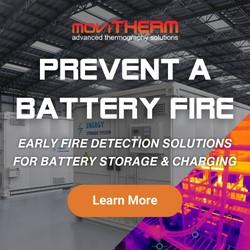Chevrolet Signs Deal to Weatherize 5,500 Homes
Chevrolet signed a letter of intent to partner with the Maine State Housing Authority to fund the weatherization of 5,500 low-income homes.
The weatherization of homes is in full-effect right now. Not only is the federal government funding programs throughout the nation, but corporations are also taking the initiative to be responsible over the weatherization of homes. Last week, Chevrolet signed a letter of intent to partner with the Maine State Housing Authority to fund the weatherization of 5,500 low-income homes.
By supporting the weatherization movement, Chevrolet will help our nation reduce carbon dioxide emissions by 40,000 tons. Chevrolet also sees the importance of helping families reduce their energy usage while simultaneously allowing them to save money on their energy bills.
"We've moved rapidly to get the carbon reduction investment process underway and we've selected an important energy efficiency project we can help make a reality," said Rick Scheidt, executive director of Chevrolet marketing. "Chevy is committed to reducing its environmental impact, and what better way to do that than to connect with customers and communities on carbon-reducing projects that directly benefit them. We are reviewing other programs like this that could positively influence change in cities across the nation."
Weatherization is a term many are not yet familiar with. The goal of weatherization is to help homeowners reduce their energy consumption by making their homes more energy efficient. A team of weatherization workers goes into a home and asks about personal energy use and analyzes the home using a blower door and thermographic scan. Both these tests reveal if the insulation of the home is working correctly. The workers who perform these tests are known as energy auditors. The energy auditors should have previously been trained at an on-site weatherization training institute and received a weatherization certification.
Then, after the energy auditor completes his or her analysis, air sealers use the tests the energy auditors conducted to detect where there is improper insulation. Improper insulation allows cold air to come into homes from the outside. Most homeowners turn up their heaters in order to feel comfortable and warm during the winter time, not realizing that the problem is in the insulation of their home. Fixing the insulation of a home is a solution to lowering energy costs.
Air sealers, who should have also received a weatherization certification at a weatherization training program, use proper techniques to correct the air leakage by sealing and insulating ducts, canned lights, attic hatches, crawlspaces, plumbing penetrations, top-plates and a variety of gaps, cracks and openings found in a residential home.
Chevrolet, a corporation making an investment in the future of weatherization, is taking responsibility to fund a project that will weatherize 5,500 low-income homes in Maine. Not only is Chevrolet funding a project that will reduce 40,000 tons of carbon dioxide emissions, but also produce a market of job creation in the weatherization industry. Energy auditors and air sealers will be in high demand in the state of Maine because weatherizing 5,500 homes is not an easy task to take on with a limited workforce.
During a time when jobs are scarce, the weatherization industry is sure to grow given the support of corporations, such as Chevrolet, and the federal government. It is important to receive weatherization training and receive a weatherization certification in order to enter the industry.
Featured Product

Early Fire Detection System for Battery Storage & Charging
Revolutionizing safety in battery reliant industries, our early fire detection system uses thermal cameras to spot early signs of battery thermal runaway. It triggers alarms and notifies users via text, voice, or email, ensuring rapid response to potential hazards. Proactive and reliable, our system sets a new standard in fire prevention for enhanced peace of mind in battery storage and charging environments.
